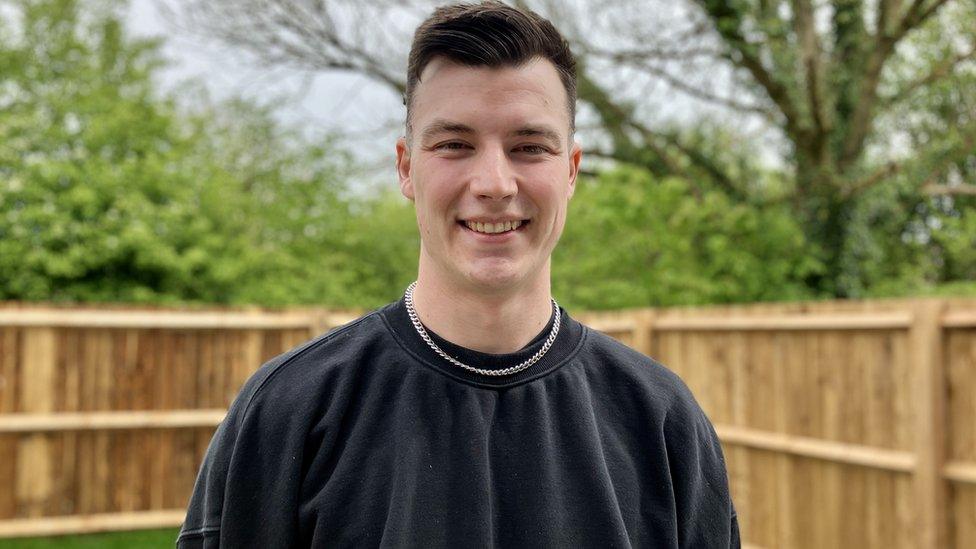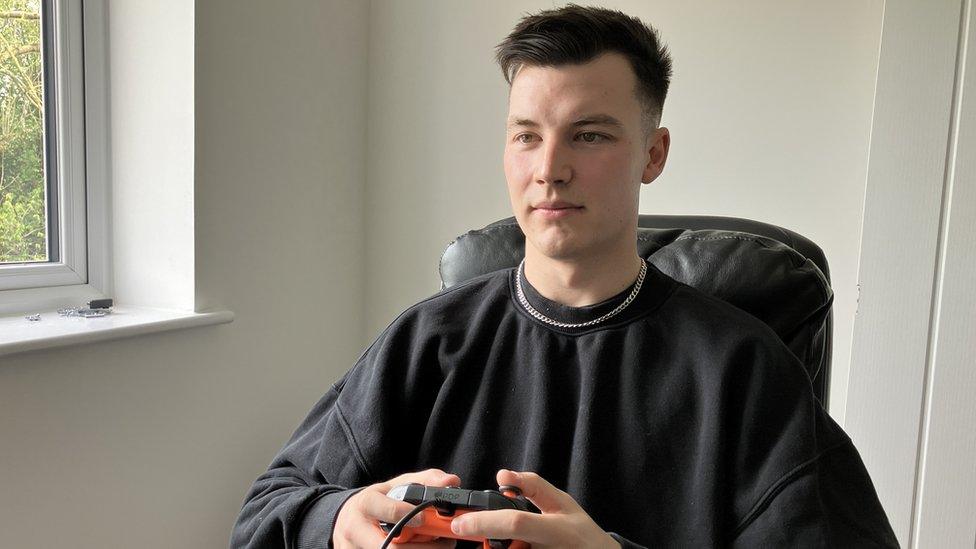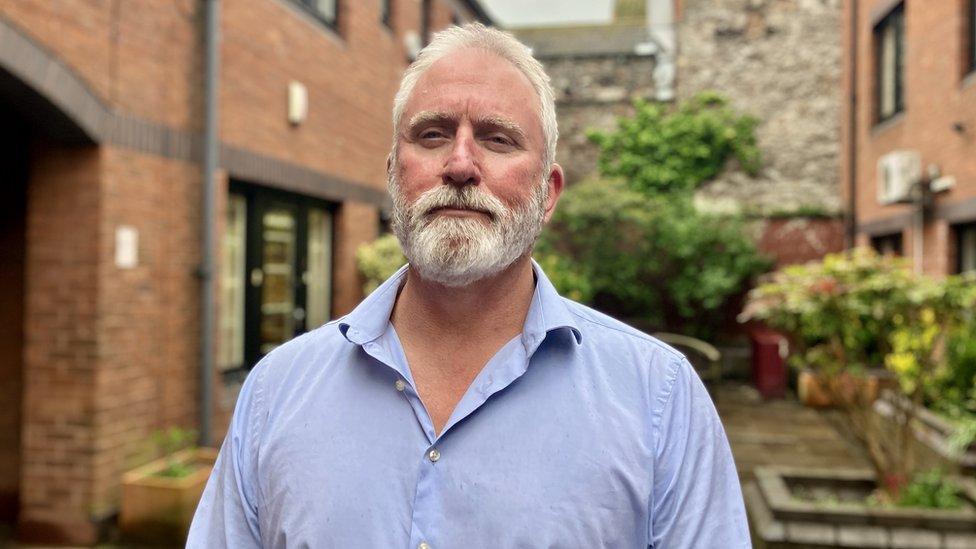'Gamble, gamble, gamble, that's all I cared about'
- Published

Chris Spindler first started placing 20p bets aged 12 and over the next 11 years, became £25,000 in debt
A man whose gambling addiction put him £25,000 in debt, aged 23, said it "truly felt like my brain was rewired".
Chris Spindler, from Cheddar, Somerset, said he was 12 when he and a school friend began placing 20p football bets.
"It was my first interaction with gambling and my first taste of risk and reward", he said.
He has spoken out as ARA Recovery, which supports people with gambling addictions, highlights its work so people know where to get help.
The Bristol based non-profit charity has supported more than 20,000 people across the South West and South Wales over the last year, providing free support for anyone struggling with their own gambling, or someone else's.
Mr Spindler, 26, said after his early experiences of gambling with small amounts, he knew "as soon as I turned 18 I would be betting on football".
"Within days [of my birthday] I had a betting account with every bookmaker that you could think of because they offer new player, free bets, free spins, so I was trying to maximise those offers.
"And my gambling did start off very responsible, just £5-£10 bets on a Saturday afternoon just trying to win ridiculous amounts of money… that you know you're never going to win but it's just a bit of fun.
"But very quickly, in just a few months, that was no longer the case.

Mr Spindler said his gambling became "quite relentless"
"I was gambling on all types of sport and events, I was gambling on football teams I couldn't even tell you what colour kit they played in or which country they were in.
He said horse racing became a big thing because it went on all day and while he was waiting to bet, he would play roulette or Black Jack.
"My gambling became quite relentless... my mind was always in a gambling state."
Mr Spindler said looking back, he knew he had a problem but had no intention of stopping, regardless of how bad his situation was.
"I was regularly taking out new loans... I didn't care about real world consequences.
"Even as my debt was building up to £25,000... my mind was just on gamble, gamble, gamble and that's all I cared about."
'Very secretive'
He said it was only after his parents found out that things changed.
"I kept my gambling very secretive and hidden for years... I was battling on my own and my mental health was in the gutter… and suicide was looking like a very real option.
"But when my parents found out… I had to be open and honest with them and my mum took me to gambling anonymous the next day."
Since then, he said he started to be more open with friends and family and began to speak out on social media about gambling harm and gambling addiction.
He closed his online accounts and blocked gambling sites on his computer and through the Multi Operator Self Exclusion Scheme (MOSES) - which takes one phone call - became blocked from betting shops.
He also let his dad get involved in his finances, which he said went some way to mending the trust between them.
"My parents were shattered when they found out and probably felt like they didn't know me any more... [but] they have played a crucial part in me getting better and without them, I don't think I'd be here to be honest."

Guy Hawker said ARA Recovery has significantly helped people with gambling addiction
Guy Hawker, Service Delivery Manager at the gambling charity ARA Recovery said there are lots of harms as a result of gambling that go beyond the financial element.
"There are relationship harms, people can get involved in the criminal justice system which they wouldn't necessarily do so and there are impacts on people's mental health and suicide... we believe there to be around 400 suicides a year related to gambling."
He said people who have accessed their services told them the harms associated with gambling addiction have been "significantly lowered".
They are able to assess which treatment suits each individual, whether individually, in groups, through peer support and also offer ongoing support to live a life free from gambling, he added.
"Gambling can often be quite a hidden harm and with that increased awareness a lot more people are coming forward.
"Like mental health, there's a lot of stigma... but there's been a lot of work to reduce those barriers."
A recent YouGov survey of 5,075 UK participants, between 29 January - 15 February, found people are most likely to choose weekly support sessions with a trained professional as an effective way to reduce gambling harms.
Two-thirds (66%) of people believe that sessions with trained professionals such as these would be an effective way to reduce harm caused by gambling.
Six in 10 (59%) said that tools to block access to gambling websites would be an effective way to control their gambling, and 58% cited speaking to a family member.
Mr Spindler said the advertising around gambling in this country is "sickening and relentless... it's thrown in your face whether you want it or not".
He said he would like to see gambling advertising "completely eradicated" to help other people like him.

Follow BBC Bristol on Facebook, external, X, external and Instagram, external. Send your story ideas to us on email, external or via WhatsApp on 0800 313 4630, external.
- Published6 May 2024
- Published2 May 2024
- Published2 May 2024